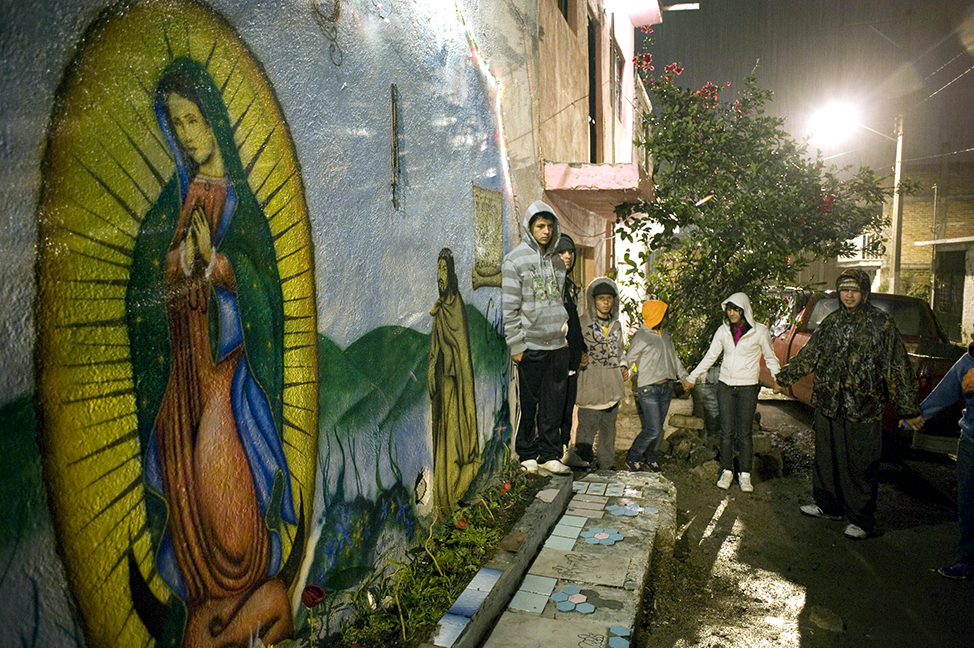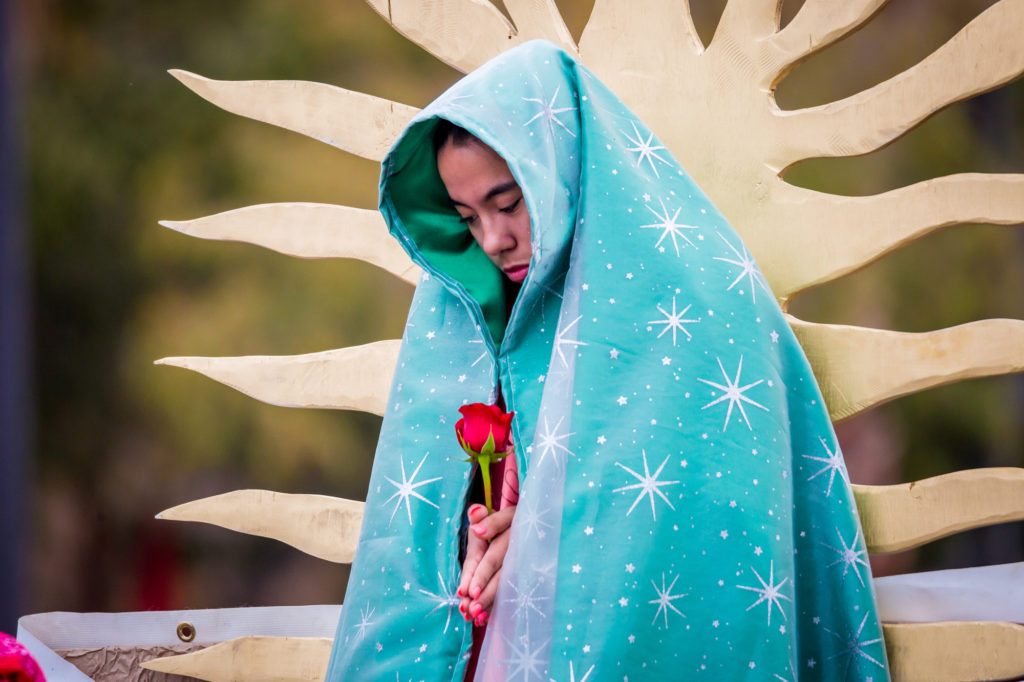

By Shemaiah Gonzalez
Catholic News Service
Growing up in East Los Angeles, graffiti was always a big issue. Gang members would define their territories by scrawling their names or that of their gang on the sides of buildings. Some families in the neighborhood had a bucket of paint on hand to cover graffiti on their wall or fence.
Business owners growing tired of painting over the bombardment of graffiti on the sides of their shops started a new tactic — they began to paint murals of Our Lady of Guadalupe on the sides of their convenience stores or auto repair shops.

The mural served both as protection for the business owner and a warning to the gang members. The message conveyed: Our Lady is watching you.
Our Lady of Guadalupe is revered in Latino culture. In 1531, she appeared to Juan Diego as a native Aztec. This became a source of pride in Latino culture. Gang members were less likely to paint graffiti on facades with the image of Our Lady — and business owners noticed.
Images of Our Lady emerged across neighborhoods, until, just as the graffiti signified a gang territory, the image of Our Lady of Guadalupe signified a Latin Catholic neighborhood.
Growing up Protestant, these murals were my introduction to Our Lady of Guadalupe. It wasn’t until I married into a Catholic family, eventually becoming Catholic myself, did I begin to understand the significance; the mother of Our Lord cared so much for the people of Mexico she appeared as one of their own. This created a bond and kinship with Our Lady of Guadalupe in a way I would come to understand more through my mother-in-law.
My mother-in-law grew up going to Mass every day in her small village in Baja California. Her faith was so well-known in the village that she was asked to be the godmother of nearly every child born there. The only daughter in a family of 14, I can only imagine how Our Lady was a particular connection and comfort in a crowd of brothers.
Moving to Los Angeles, images of Our Lady of Guadalupe connected my mother-in-law to her culture, her homeland and her faith, and when I became Catholic over a decade ago, Our Lady of Guadalupe connected me to my mother-in-law.

Generational, cultural and language differences had kept us from connecting in ways that I’d seen in movies or imagined in my own mind, but when I became Catholic, I understood in a new way. It was our faith that connected us.
I knew Our Lady of Guadalupe watched over my husband’s family for generations, drawing them to her Son and reminding them of their faith as they came to the states. Born on her feast day, Dec. 12, my husband was a yearly reminder to stay focused on their faith.
And I know that when I married my husband, his mother asked Our Lady of Guadalupe to pray for my husband and I, that one day our family would be unified in faith.
Now, in Seattle with our own sons, images of Our Lady are not as common. Finding her image comes with a particular love and reverence now, knowing they connect us not only to our own faith but our family more than 1,000 miles away and to those who have come generations before.
We pray, “Hail Mary, full of grace, the Lord is with thee!” and I can only imagine, one day, the bride of one of my own sons, laying her bouquet before Our Lady’s shrine on their marriage day with the same prayer on her lips.
Shemaiah Gonzalez is a freelance writer. Her website is shemaiahgonzalez.com.





